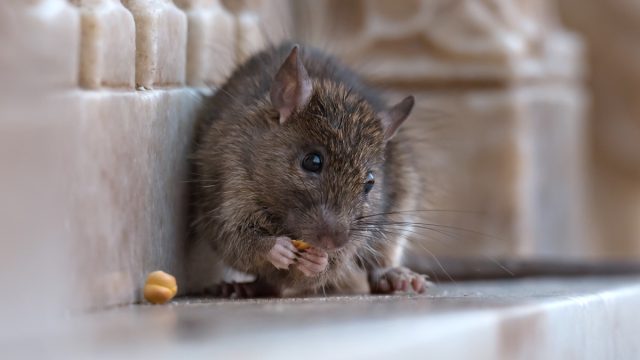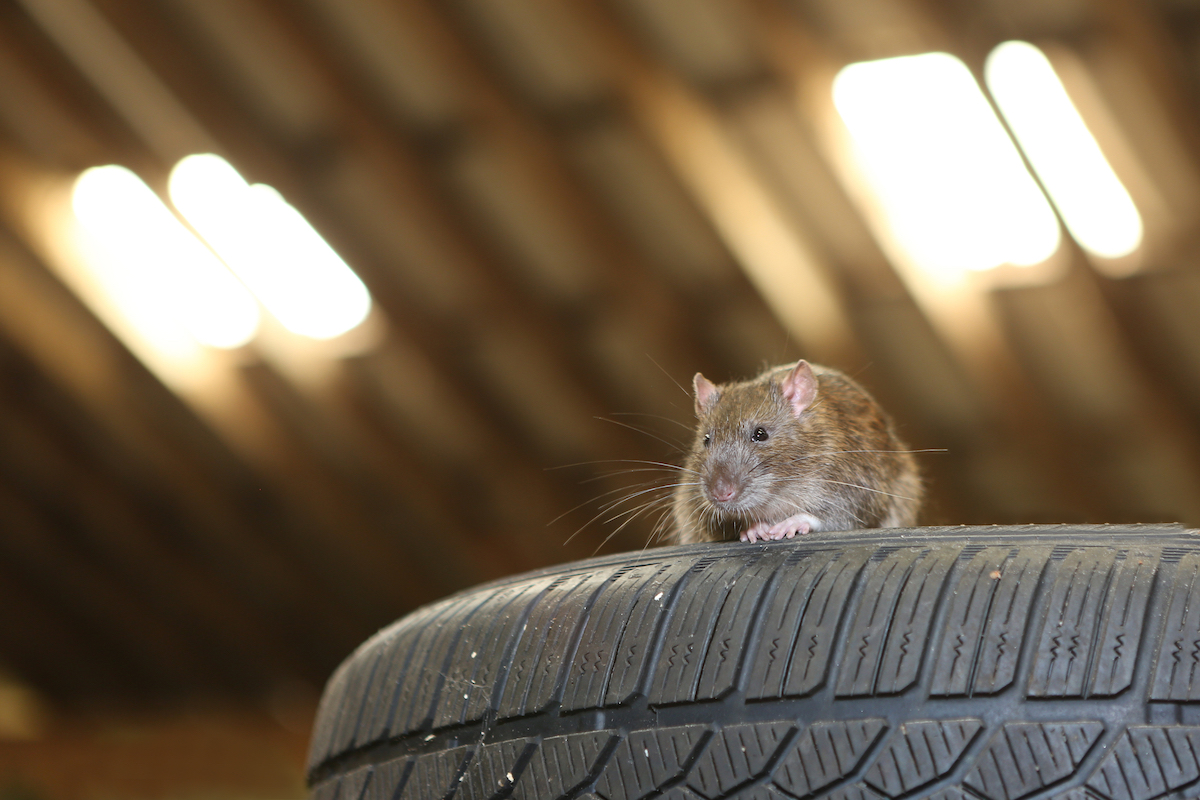If You Live Here, Prepare for an “Explosion of Pests,” Experts Say

Whether you see a spider while tending to your garden or happen upon a snake while hiking, it’s no secret that summer is prime time for surprising encounters with unexpected insects and animals. And while these run-ins can happen anywhere, pest experts say there’s one area in the U.S. where a recent influx of both rodents and insects is getting so bad it’s being deemed an “explosion of pests.” Read on to discover where the pest population is going off the charts this summer.
RELATED: If You Live in These States, Prepare for More of This Deadly Spider, Experts Say.
Chicago is seeing an influx of insects this summer.

If you live the Midwest’s largest city, you may find yourself dealing with more than your fair share of uninvited insects this summer, with experts calling a recent influx of bugs an “explosion of pests.” Speaking to Block Club Chicago, Janelle Iaccino, marketing director at Rose Pest Solutions explains that populations of cluster flies and house flies are “exploding out of control” within the Illinois city.
Since early summer was rainier than usual, many gardeners didn’t start planting until later in the year, which is why cluster flies are just starting to emerge now. “[Cluster flies] plant their eggs in the soil, and that’s where the larva then emerges,” Iaccino explains.
Iaccino says that the uptick in human activity and resulting trash has brought about the abundance of house flies the city is now seeing. “It’s all just a hot garbage summer,” Iaccino explains.
For the latest health and safety news delivered straight to your inbox, sign up for our daily newsletter!
The city is also seeing an uptick in rat activity.

While Iaccino explains that rat populations typically shrink during the summer months, Chicagoans have had no such relief this year. “They are running rampant right now,” Iaccino says, nothing that, rats, like many other pests, “thrive when there is human negligence.”
In fact, the issue with urban rat encounters became so bad in Chicago during the pandemic that it was studied in the academic journal BMC Public Health. Researchers found that, among a study population of 835 Chicago residents, 21 percent said they had seen an increase in rat activity during stay-at-home orders in the city, with these encounters causing them stress and making them less likely to venture outdoors.
Two weather conditions are likely to blame for the influx of certain pests.

In addition to there being more garbage on city streets as COVID restrictions lift and people are leaving their houses more frequently, the summer’s erratic weather may be responsible for the uptick in certain pests.
Not only does the combination of heat and abundant garbage attract pests like rats and house flies, heavy summer rains have made conditions ideal for other insects, too.
“You might also see mosquitoes when you’ve got puddles of stagnant water,” Nick Seiter, a field crop entomologist at the University of Illinois at Urbana-Champaign, tells Block Club Chicago. “You’ll see buffalo ants or black flies when you have high rivers.”
There’s a protective measure everyone should take to keep themselves safe.

It’s not just the displeasure of swatting away bugs when you’re outdoors that comes along with this summer’s uptick in bug activity. Mosquitoes can also carry a number of diseases, among the most common of which in the U.S. is West Nile virus, according to the Centers for Disease Control and Prevention (CDC).
However, mosquito bites can also transmit Dengue fever, chikungunya, and Zika virus, so CDC experts recommend covering as much skin as you comfortably can when you’re outdoors and using an EPA-registered insect repellent to keep bites at bay. While overflowing public garbage cans are a larger civic issue—and one that can’t necessarily be tackled at an individual level—keeping your household or building bins covered can make your home look less appealing to rats and flies, too.
RELATED: This State Is Under Quarantine Due to Fire Ants—11 Others Could Be Next.